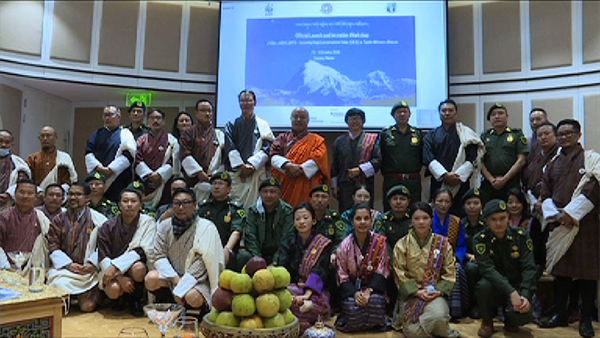 To assist Bhutan in ensuring its biodiversity conservation outside the protected areas and enhance the livelihood of those living in it, World Wildlife Fund (WWF) Bhutan and Tarayana Foundation launched the Living Landscapes Project in the capital yesterday. The project worth €10 M will be implemented in nine districts covering south-western parts of the country.
To assist Bhutan in ensuring its biodiversity conservation outside the protected areas and enhance the livelihood of those living in it, World Wildlife Fund (WWF) Bhutan and Tarayana Foundation launched the Living Landscapes Project in the capital yesterday. The project worth €10 M will be implemented in nine districts covering south-western parts of the country.
The project is funded by the International Climate Initiative under the German Federal Ministry of Environment, Nature Conservation and Nuclear Safety.
The identified districts are Chhukha, Haa, Paro, Thimphu, and Samtse in the west and Dagana, Tsirang, Sarpang and Zhemgang in the south. The activities of the project include identification of High Conservation Values and integration into the National Land Use Plan, technical and institutional capacity developments of eight divisional forests offices and enhancing the livelihood of the rural communities.
“The objective of this project is to ensure the conservation of biodiversity outside the protected area through the identification of High Conservation Values. So I think when we talk about high conservation values, this is a very new concept, a new approach in terms of biodiversity conservation which not only focuses on biodiversity conservation but there are other elements which include culture, social and livelihood components. So I think it is more of an integrated approach to biodiversity conservation,” said Pema Thinley, the Program Director at WWF Bhutan.
The Department of Forests and Park Services, during the launch, highlighted that the traditional biodiversity conservation approach has focused more on the protected areas and there is a need to shift the focus in areas outside the protected areas.
“Even though we say that we have more than 51 % of our areas under a protected area, I think in terms of biodiversity richness, there are lots of biodiversities both which are critically important, endangered outside the protected areas. And also the fact that I think a lot of developmental activities happen outside protected areas will have lots of impact on biodiversity conservation and also the fact that there are lots of people living outside the protected areas will improve the livelihood of the people,” he added.
WWF Bhutan and Tarayana Foundation will be the key implementing partners of the project and will be implemented over the next eight years.
Sonam Pem





